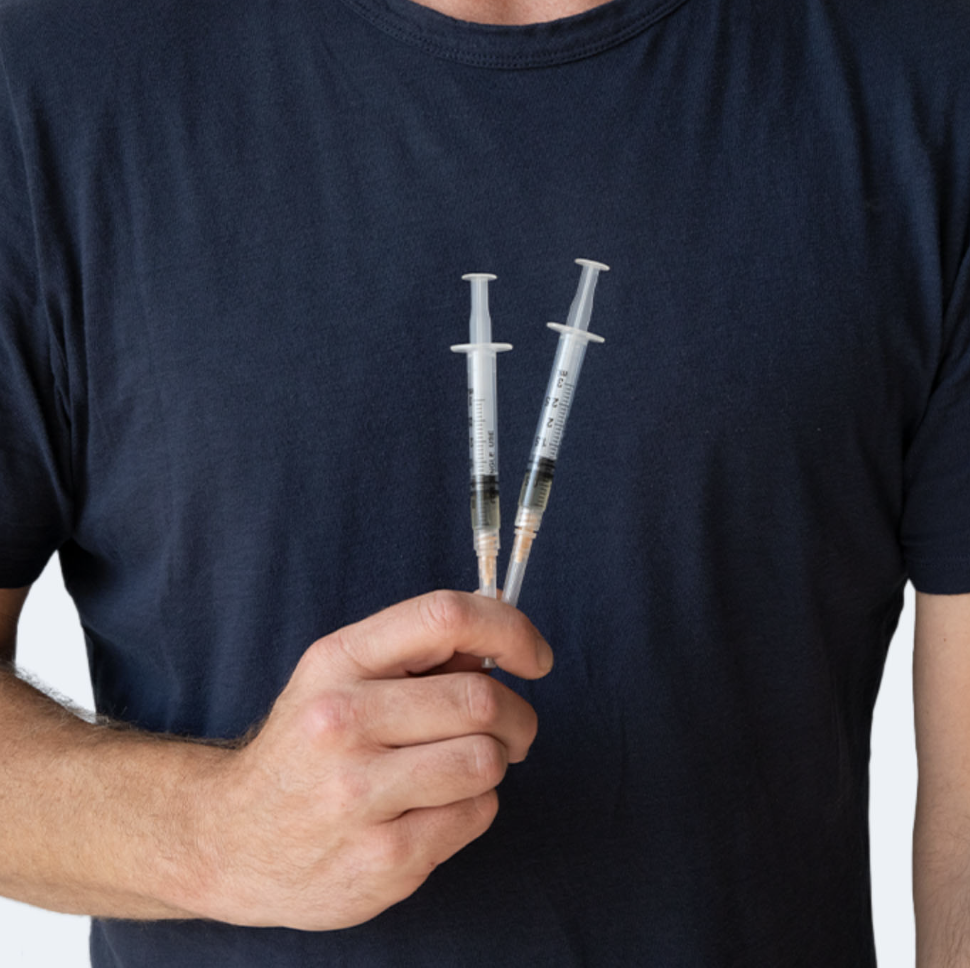DHT Hair Loss: Do You Actually Lose Hair Taking Testosterone?
category: Testosterone

Dihydrotestosterone (DHT) often gets a bad rap in discussions about testosterone therapy and hair loss. Despite the myths, DHT plays a crucial role in male development, including muscle strength, bone density, and libido. However, as men age, DHT and testosterone levels can decline, leading to symptoms like decreased energy and sexual dysfunction. Today, we’re setting the record straight on DHT and hair loss, breaking down misconceptions, and highlighting how DHT can significantly benefit those needing a testosterone boost.
What Is DHT?
Before we go into DHT and its relation to hair loss, let’s step back and discuss what it actually is. DHT is a hormone derived from testosterone, responsible for many male characteristics. Contrary to popular belief, DHT hair loss is largely a myth. In reality, DHT’s effects on the body are complex and beneficial, particularly in areas like muscle growth and overall vitality.

Hair Loss As We Age
According to the American Hair Loss Association, hair thinning becomes increasingly common with age: by age 35, 66% of men experience some level of hair loss, and by age 50, this figure rises to 85%. Among women, 40% experience hair loss, with nearly half facing some degree of thinning by age 50.
Despite these statistics, the initial solution often recommended by physicians and cosmeticians—limiting dihydrotestosterone (DHT) production—may not always be the most effective. Surprisingly, the vast hair loss industry, worth billions, largely relies on the concept of DHT inhibition to combat hair loss and encourage regrowth.
Genetics Role in Hair Loss
A modest human study conducted in 2014 revealed intriguing findings concerning patients of both genders suffering from androgenetic alopecia. The study involved 49 participants, consisting of 19 women and 9 men diagnosed with the condition, and a control group of 17 healthy women and 4 men who did not experience hair loss. The results highlighted that the primary factors are likely the genetically-determined sensitivity of hair follicles to dihydrotestosterone (DHT) and their varying responses to androgen levels.
Castrated Men Lose Their Hair Too
Castration significantly reduces testosterone levels, which in turn decreases DHT production and potentially inhibits hair loss. This has a severe implication on hormonal health but for now, let’s focus on how it impacts hair loss.
Dr. James Hamilton’s observations in 1942 shed light on the relationship between castration, sexual maturity, and hair growth. He noted, “All men who failed to mature sexually had little or no dandruff and did not become bald. Common baldness only occurs in sexually mature individuals from families prone to hair loss. Androgenic therapy induced baldness only in eunuchoid and castrate members of such families. Cessation of treatment, as well as castration of normal men who are becoming bald, prevents further expansion of bald areas but does not seem to promote general hair regrowth.”
Where Does The DHT Hair Loss Myth Come From?
The belief that DHT causes hair loss, although untrue, is the main side effect associated with this testosterone medication. So where did these myths come from?
DHT is a hormone produced from testosterone, which is closely linked to male characteristics, including hair growth. Studies have shown people with higher DHT levels experience hair thinning or balding and media portrayals have reinforced this misconception.
The main thing you need to understand is this – several factors behind DHT hair loss have been overlooked. New evidence suggests a more complicated relationship, but the idea has stuck around for a long time.
DHT Hair Loss Prevention
We advise against using Finasteride for hair loss due to its downstream effects on hormones and the risk of “Post Finasteride Syndrome.” Instead, we recommend exploring alternative treatments that are less likely to disrupt your body’s natural functions. These include Platelet-Rich Plasma (PRP) therapy, exosomes, red light laser therapy, hair peptides, dermarolling, and nitric oxide products to enhance blood flow. Additionally, managing inflammation through lifestyle changes and potentially using medications like metformin can also support hair health and regrowth.
To learn even more information about this topic, check out our Youtube video, Demystifying DHT Hair Loss, with Dr. Keith Nichols.
Post-Finasteride Syndrome
Post-finasteride syndrome describes persistent sexual, neurological, physical and mental adverse reactions in patients who have taken finasteride, a 5-alpha reductase type II enzyme inhibitor used to treat hair loss (under the brand name Propecia or generics) or enlarged prostate (Proscar or generics).
There is an entire foundation dedicated to PFS.